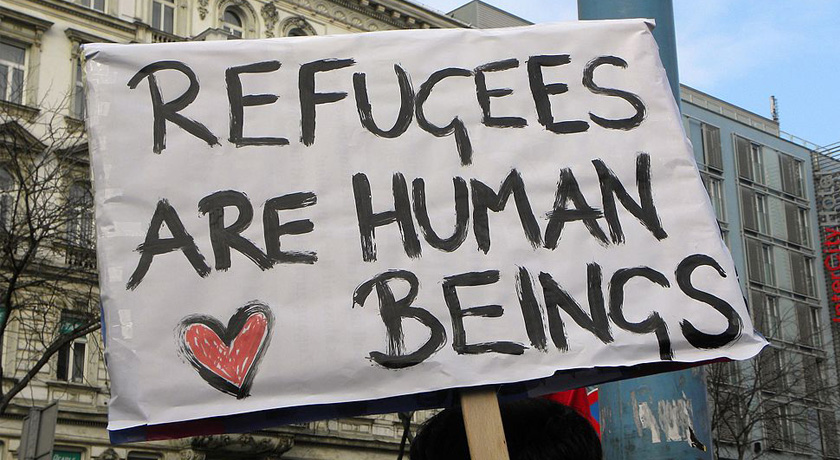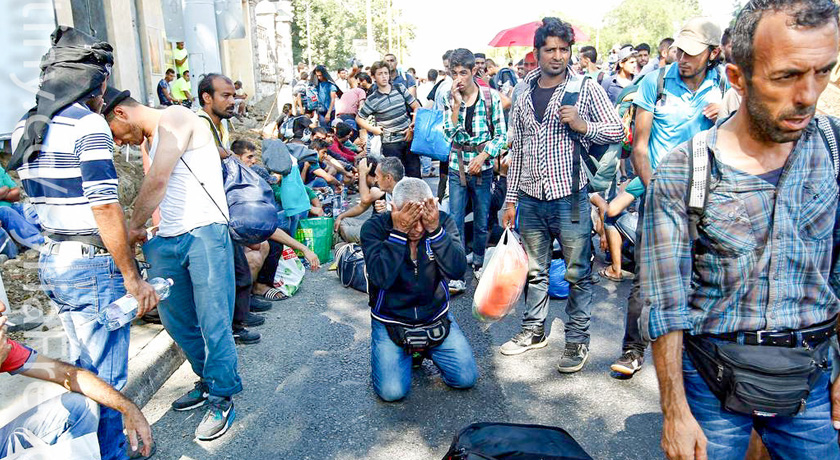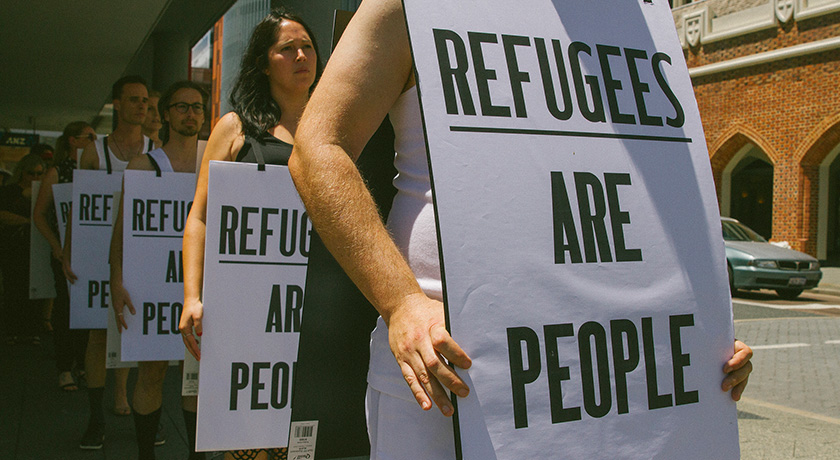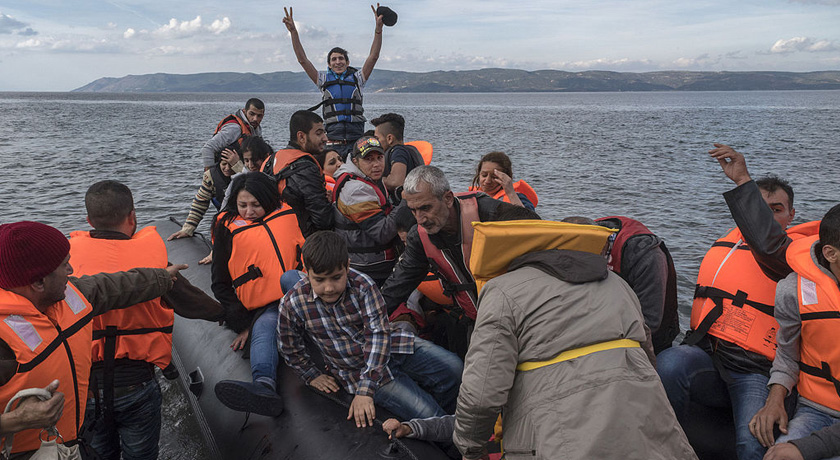 An initiative calling for improved rights and better support for ‘stateless’ people has been backed by members of the United Reformed Church.
An initiative calling for improved rights and better support for ‘stateless’ people has been backed by members of the United Reformed Church.
Francis Brienen, Deputy General Secretary (Mission), John Collings, lay preacher for Rutherglen URC, South Lanarkshire, the Revd Fleur Houston, member of Macclesfield and Bollington URC who works on the advocacy wing of the Churches Refugee, the Revd David Pickering, Moderator of the National Synod of Scotland, and the Revd Dr Noel Irwin, Tutor in public theology and church related community work at Northern College, have joined more than 100 religious and faith leaders in signing a statement urging the UK government to do more to welcome those who no longer have a country to call their home.
The statement is calling for the UK government to review its policies towards stateless people – as many end up in prolonged and pointless detention while the Home Office tries to remove them from the UK.
Without a legal residency status – in the UK or another country – ‘stateless’ people cannot leave the UK as no country will accept them. Without status, they do not have permission to work and remain vulnerable to destitution, exploitation and detention. Worldwide there are around 10 million ‘stateless’ people, and the signatories are calling for alternatives to detention and better support for access to rights, advice and help with integration.
The move is part of the #LockedInLimbo campaign, led by the European Network on Statelessness, and seeks to end the detention of people who end up locked in limbo simply because they have no country that they can return to.
Backing the call to action, Ms Brienen said: ‘There is no question that statelessness leaves people vulnerable and at risk of being forgotten and abandoned, and I hope that the government takes on board this call to action and does more to help end statelessness and the arbitrary detention associated with it. The welfare of people who face marginalisation and exclusion is paramount. Everybody deserves to have their human rights recognised and respected, which is why this multi-faith collaboration is so important.’
 The statement reads:
The statement reads:
‘An estimated 10 million people worldwide are stateless, which means that according to the 1954 Statelessness Convention they are “not considered as a national by any State under the operation of its law”. Citizenship has often been described as the ‘right to have rights’. Statelessness, in turn, is a corrosive condition that impacts almost every aspect of daily life.
The use of immigration detention and the criminalisation of irregular migration is increasing across many parts of Europe. Stateless people are particularly vulnerable to arbitrary detention, including here in the UK. Some face indefinite detention because there is no country to which they can be returned but equally no prospect of regularisation in the country hosting them.
‘All our faiths compel us to affirm the dignity of all human beings and to offer help to anyone in need. The best of this country is represented by the generosity, kindness, solidarity and decency that the United Kingdom has at many times shown those who need our protection, even at times of far greater deprivation and difficulty than the present day.
‘There is strong multi faith support from local, regional and national religious leaders which demonstrates a shared commitment to the welfare of the most marginalised and a degree of moral and ethical urgency to this issue.
 ‘We therefore urge the UK government to do more to welcome stateless people and in particular to adhere to five key principles:
‘We therefore urge the UK government to do more to welcome stateless people and in particular to adhere to five key principles:
- 'Implement a range of alternatives to detention to ensure that stateless people do not end up locked in limbo simply because they have no country to which they can return.
- Ensure early identification where a person lacks a nationality, and guarantee that detainees have full access to the UK’s statelessness determination procedure.
- Carry out an individual vulnerability assessment as part of every decision to detain.
- Facilitate integration in the community by regularising stateless people and granting them a residence permit and facilitated access to naturalisation.
- Improve monitoring and data collection on statelessness as in order to effectively address the problem it needs to be properly understood.’
The full list of signatories can be find here.





